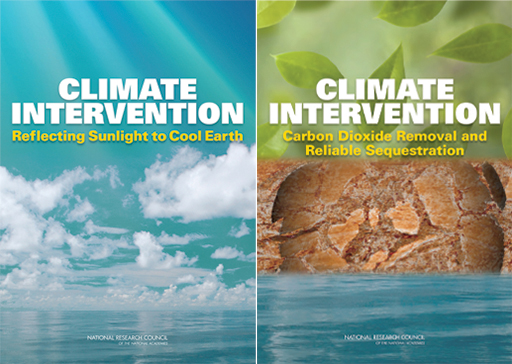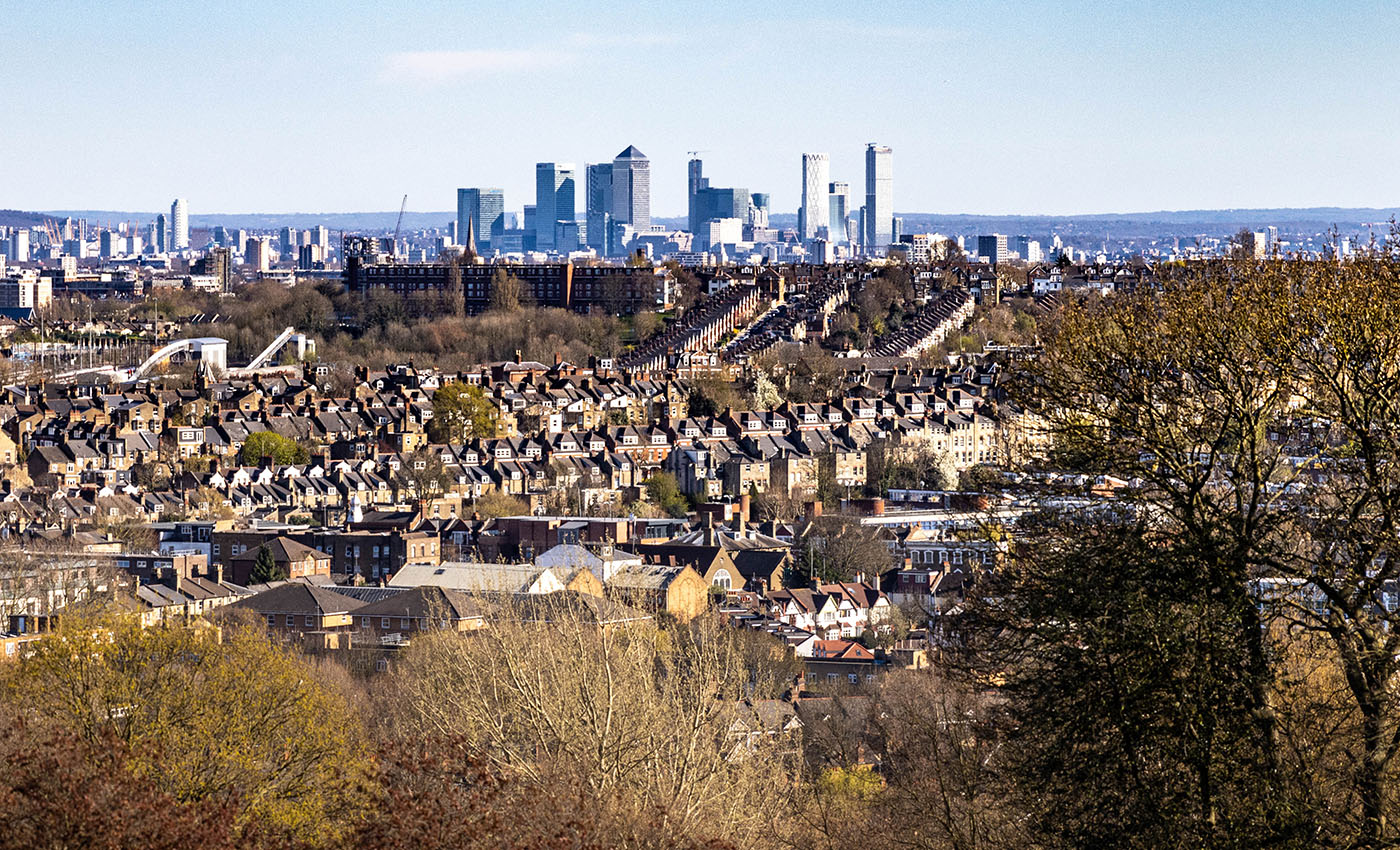Session 8: Will we engineer the climate?
Introduction
Is geoengineering likely to be attempted in the future? In 2015 the US National Research Council (NRC) released a major report on Climate Intervention (Figure 1: National Research Council, 2015a; 2015b). This was seen as a shift towards serious planning for implementation: Start of Quote
Rather than presenting climate engineering as an extreme response to be avoided if at all possible, the report normalises climate engineering as one approach among others.

Geoengineering is certainly seen, therefore, as an option worthy of serious consideration, even if the political will to implement it waxes and wanes over time.
This session will consider:
- media reporting and assessing of whether climate model predictions are reliable
- public opinion
- current aims of international climate negotiations
- whether we could achieve these aims by reducing greenhouse gas emissions or geoengineering.
Then, in your role as Energy Balance Consultant, you will be asked to make your own geoengineering decisions. What would you do?
By the end of this session, you should be able to:
- compare climate model predictions with observations
- evaluate how a scientific study is reported in the media
- appreciate a range of different public opinions about climate change and geoengineering, and how these might come about
- understand the Paris agreement targets for future climate change
- design your ideal future climate and reflect on how you come to this decision.
